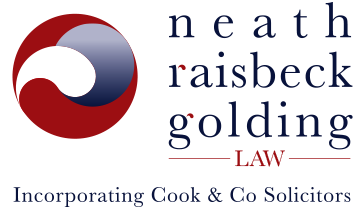CASC or Charity? A question of status.
In recent years the regulations for Community Amateur Sports Clubs have tightened and HMRC has become more stringent in their enforcement of such rules.
This has seen some sports clubs convert to a charitable status due to a whole host of factors ranging from level of income to membership costs. Deciding which status is most beneficial, achieving this status and ensuring compliance are all very important issues which are highly specific to the individual needs of your club. At Cook & Co we tailor our expertise to meet these specific client needs and can advise on this imperative question of status.
What is a CASC?
The Community Amateur Sports Club (CASC) Scheme was introduced in April 2002 to allow local amateur sports clubs that met specific criteria to register with HM Revenue and Customs (HMRC) and benefit from a range of tax reliefs, including Gift Aid. In 2015 new regulations made the CASC criteria stricter with new income and membership cost limits pushing some clubs out of CASC status.
A charity is registered with both the Charity Commission and HMRC whereas a CASC is only registered with the latter. Essentially the difference being that a charity faces greater regulatory control but additionally receives a greater number of benefits surrounding both tax relief and reputational advantages. CASCs however face less regulation and control but they are also granted with fewer tax relief options.
Would my club be eligible for CASC status?
In order to be granted CASC status a club must be already complying with the relevant criteria and therefore it is not the case that clubs can simply outline plans to meet the necessary conditions in the future. To register as a CASC with HMRC a sports club must:
* Be open to the ‘whole community’.
* Be organised on an ‘amateur basis’.
* Not exceed a limit on income.
* Be set up in an ‘eligible area’.
* Be managed by ‘fit and proper persons’.
* Have its ‘main purpose’ as providing facilities for, and promoting of participation in, an eligible sport(s).
What factors do I need to consider?
A range of factors can influence the decision regarding the most suitable and beneficial status for a particular sports club. For example, the income limit means that clubs with sponsorship deals, a loyal support base or those owning their own property must be careful to ensure that their income is not exceeding the designated limit. Additionally, as some clubs become larger it may be the case that individual volunteers are no longer comfortable holding personable liability if they are an unincorporated association. Ultimately the differences in tax relief options as well as meeting the relevant compliance standards are matters that must be considered when determining the best options and plan for your club.
Our private client team have the relevant expertise and experience to assist you in decisions or questions that your sports club may have. If you wish to discuss matters further or you require further information, then please do not hesitate to contact us via email at hello@cookco.co.uk or by phone on 0117 317 9719.

Peter Golding
Private Client & Property Solicitor
Peter has a wide experience of private client and property arrangements together with residential conveyancing work.
